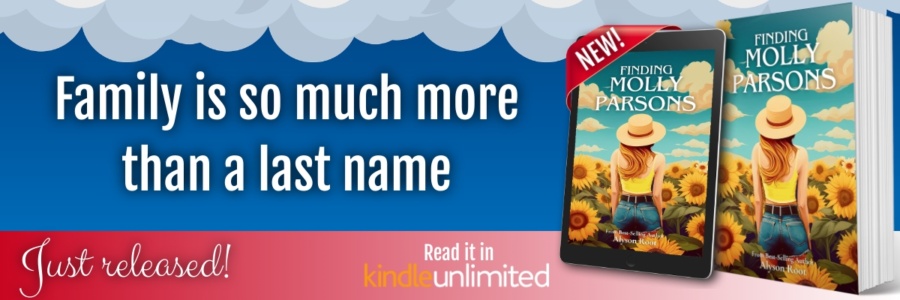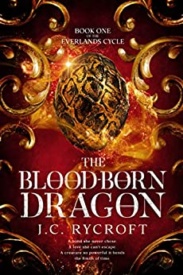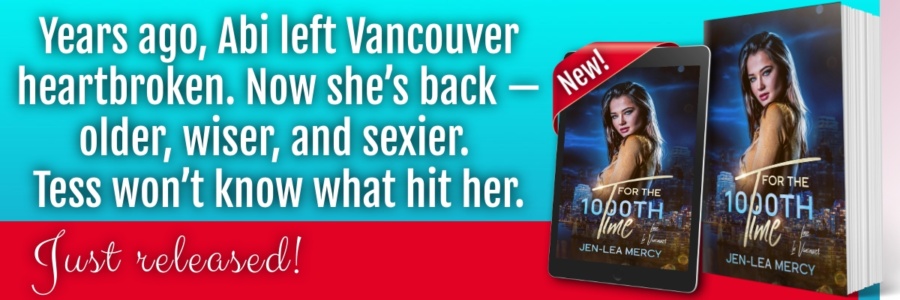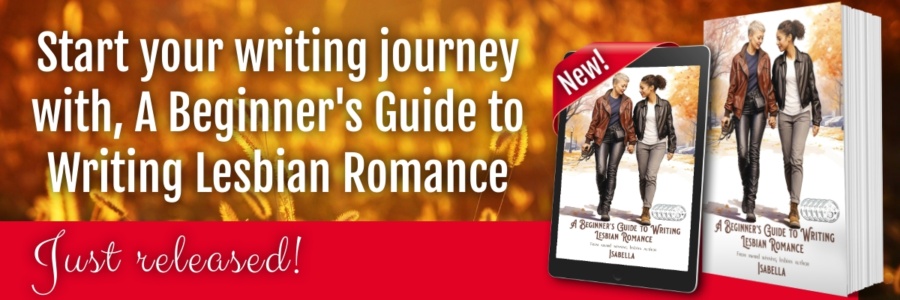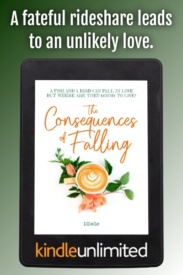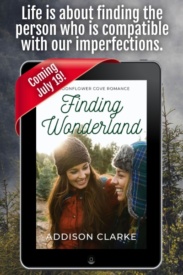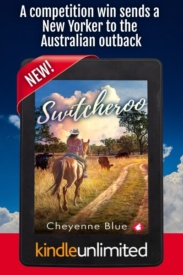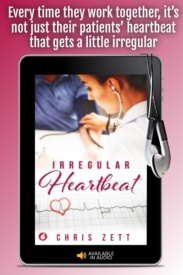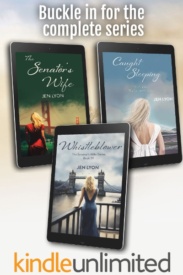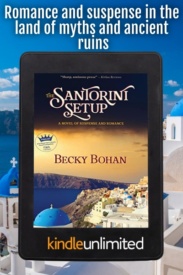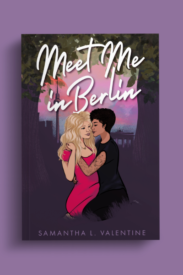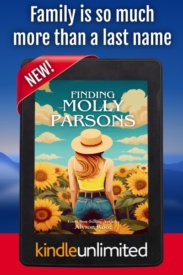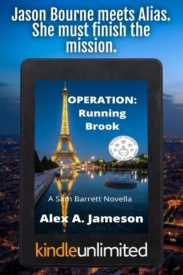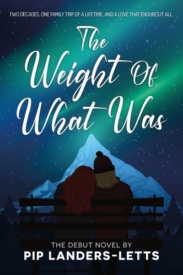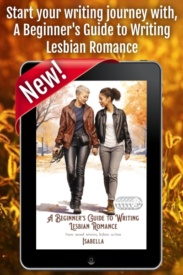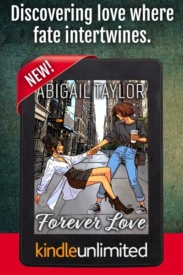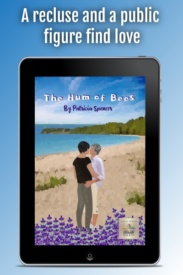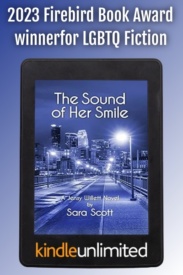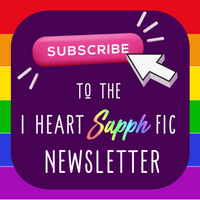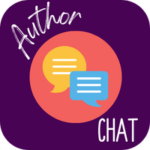
Get ready to learn more about the book The Blood-Born Dragon in this discussion with sapphic author J.C. Rycroft.
Join us for an exclusive peek behind the scenes as we quiz J.C. Rycroft about The Blood-Born Dragon, writing, reading, and more.
This book is part of the Action & Adventure category in the 2024 IHS Reading Challenge.
Why did you write The Blood-Born Dragon?
I’d been thinking a lot about women being ‘sidekicks’ to chosen ones who just happen to be men. Both of the… counter-inspirations, I suppose we might call them?… are associated with deeply problematic creators. One is the series that must not be named, and the other is Firefly, created by a man whose name is now ash in my mouth. In both, women who by far outstrip the men who are the focus of the story are relegated to side characters. So I started by imagining a badass, sword-wielding woman as my main character, but also imagining her as flawed and complex as a real person. I also gave her the intriguing backstory of being a performer, because writing in first person gave me the space to explore what it means to ‘play’ (act), and slowly find your way to truly being what you pretend to be.
Because if there’s one secret theme, behind all the swordfights and chase scenes and action carry-on to this story, it’s that heroes aren’t perfect paragons of virtue, flying solo as they overcome impossible odds. No, real heroes are people like you and me, with heroism demanded of them. They don’t appear out of nowhere; they become heroes, over time, and with lots of mistakes. And they don’t do it alone. They only ever do it with others behind them. So you, yes, *you*, dear reader, can play at hero – and maybe become one, over time.
Who is your favorite character in the book?
My main character, Des, is probably my favourite character. She’s similar to me in some ways, though much of the uncertainty and self-destructive tendency to persist with people who are bad with her I hope I’ve left behind me (ahem!). Her self-doubt, uncertainty and continual second-guessing are at least inspired by me – I can’t quite work out if I’ve tripped over into parodic exagerration on that front, tbh!
She’s different to me in that she wants to be alone; she believes that travelling solo is better all round. And she’s probably a little more likely to find herself flirting easily with women (I’m that special kind of introvert who can only flirt with people I’m not interested in!). Oh, and there’s the whole sword-wielding, horse-riding, sassing-the-bad-guys element, which is totally not like me… well, I occasionally pull some sass, I guess, but Des has a fair bit of my esprit d’escalier. I suspect that’s true for most authors tbh!
What part of The Blood-Born Dragon was the most fun to write?
The action scenes! They’re threaded through some deep interiority, but they are high-octane. My dev editor describes reading them with her nose an inch from the screen, her heart racing… and having to read them twice in order to make sure they work for the story as well. They’re super fun to write – I write them at approximately the pace they’re happening, with words pouring onto the page. And interestingly enough, readers tell me that these scenes are their favourites too. In The Blood-Born Dragon, there’s a scene where a veritable army is in pursuit of our hero, and she’s riding along a beach toward a causeway that leads to an island that they hope will be safe – and the tide is coming in….!
What is your favorite line from your book?
“Well, it does make me want to play at hero for you,” I say, and then blush momentously as regret envelops me.
Where do you usually write, and what do you need in your writing space to help you stay focused?
Oh wow. This has changed so much. Once upon a time, I had to have a carefully-managed work space. But parenting has a tendency to change everything. I wrote this book mostly beside the sea in Thailand, but finished on my phone in the dark while a baby drowsed into sleep. And now, I’m quite often surrounded by noise and life, sitting on the couch with my laptop on my knees (don’t tell the physio!).
Is there a particular genre you would love to write but only under a pseudonym?
So this is a pseudonym! In my Real Life (as opposed to an Author Life), I do V Srs work – so much so that my real name on the internet is associated with government inquiries into V Srs matters. So given the deep contrast between the two, the need to create an author brand, and the fact that I had no sense of how tolerant my work would be of my fantasy writing… I created JC Rycroft. It’s a family name, that surname, though I have no doubt that the last person to bear it would deeply disapprove of my stories – swearing, violence, sex and sass. I don’t mind offending previous generations though!
What author in your genre do you most admire, and why?
Jacqueline Carey – and Robin Hobb. They both write exception first person epic fantasy, and I do love the sweep of giant, world-changing events, and the way that one person’s inner life winds up playing a central role in them. They’re quite different, in a bunch of ways. Carey writes queerness into almost every page in various ways, and I love it. And Hobb makes her characters flawed and real, and absolutely different to each other. The way that these characters relate – the way that their relationships reshape the world they all live in – feels second to none.
Do you feel bad putting your characters through the wringer?
Oh absolutely! I very often feel bad at the wringer I put my characters through! In fact, there’s a scene very early in The Blood-Born Dragon where Des has been attacked on the road, forced to pick up the sword she swore she wouldn’t, awkwardly saved the lives of those who tried to kill her, and has had a dragon appear in the purse she liberated from her attackers… and then, well, her ex walks in. It does seem a bit like the worst day ever. But there’s nothing like putting a character through the wringer to show us who they really are (Des plays her way out of the door, and then sprints through the town back to the tavern where she’s staying).
What type of books do you enjoy reading the most?
Fantasy, oddly enough! Well, fantasy as well as philosophy and critical theory. I enjoy wondering about why the world is the way it is, and what would change if just one thing were different. It’s fairly lightly held, but my book explores ideas about mortality and death (and immoratlity!), being and becoming, and stasis and change. I did a PhD, so I think I got a lot of the reading of philosophy and critical theory out of my system, though I do love going back there. But fantasy has been a mainstay since forever.
Ursula LeGuin says “Fantasy is a literature particularly useful for embodying and examining the real difference between good and evil… [I]maginative literature continues to question what heroism is, to examine the roots of power, and to offer moral alternatives. Imagination is the instrument of ethics. There are many metaphors beside battle, many choices besides war, and most ways of doing good do not, in fact, involve killing anybody. Fantasy is good at thinking about those other ways.” And I suspect that’s why I wind up with this perhaps strange entangling of genres in my reading!
What books did you grow up reading?
I have read and re-read Tamora Pierce’s Song of Lioness Quartet. There was something about a girl who dressed as a boy in order to challenge social norms and find her own way that I just loved. And to be honest, resistance has remained one of the things I’m most intrigued by – when does resistance happen, what brings it about, and when does it succeed? This is a theme I suspect runs through a bunch of my writing too.


